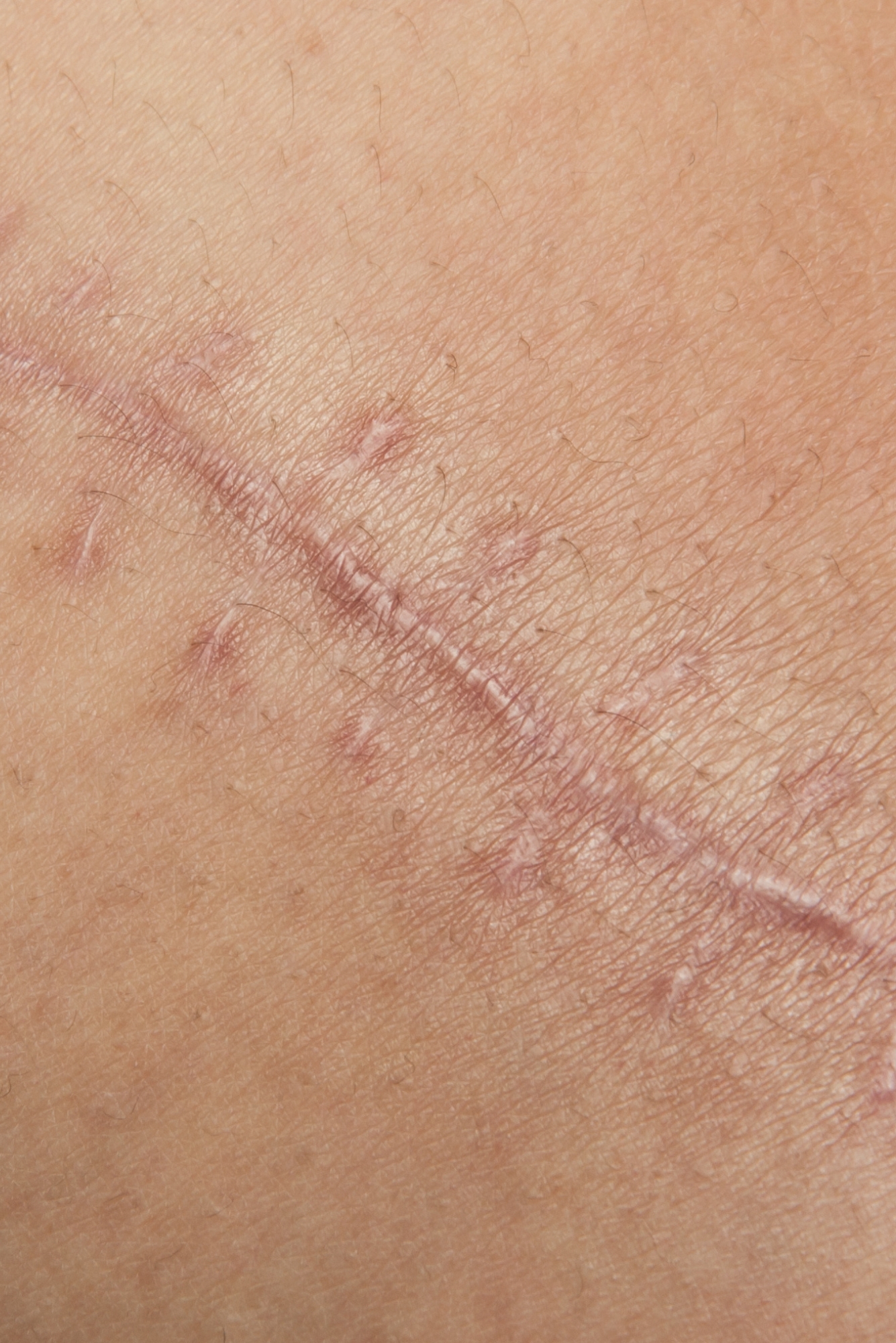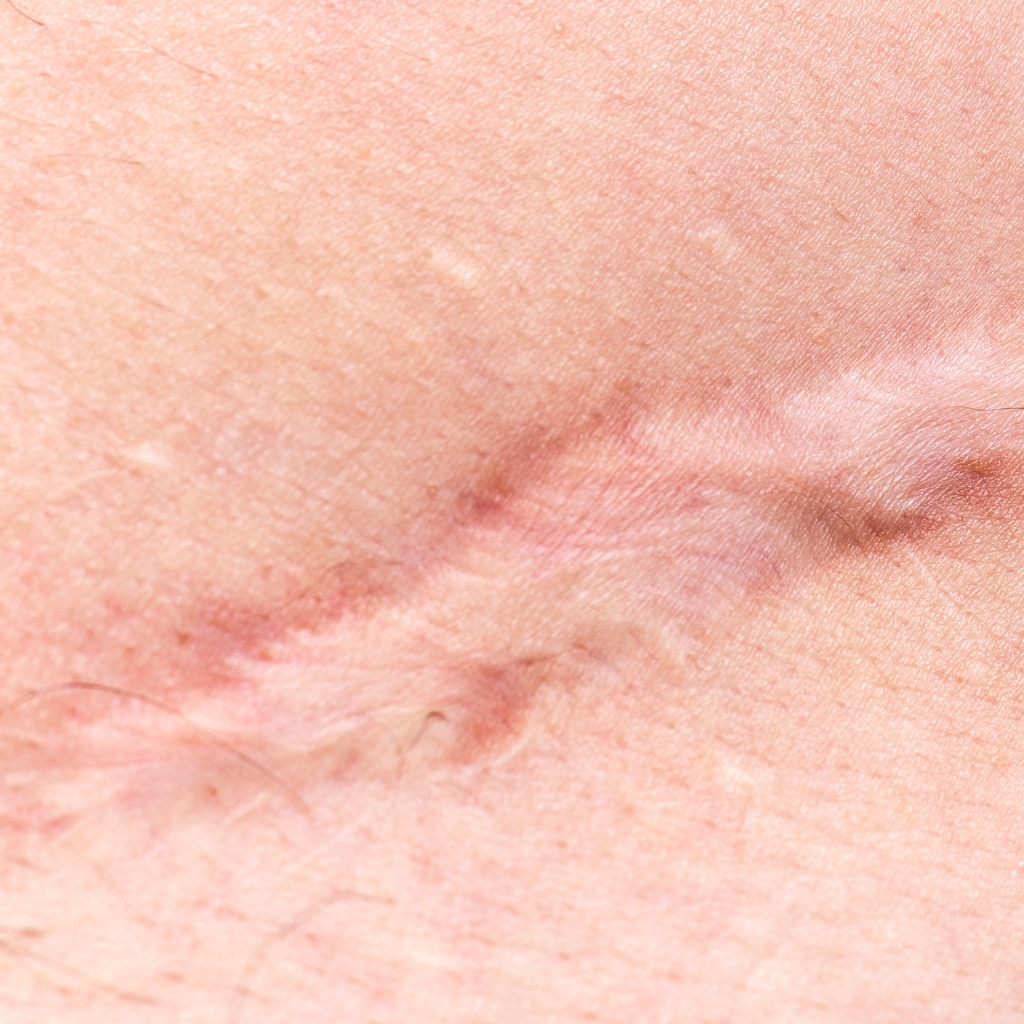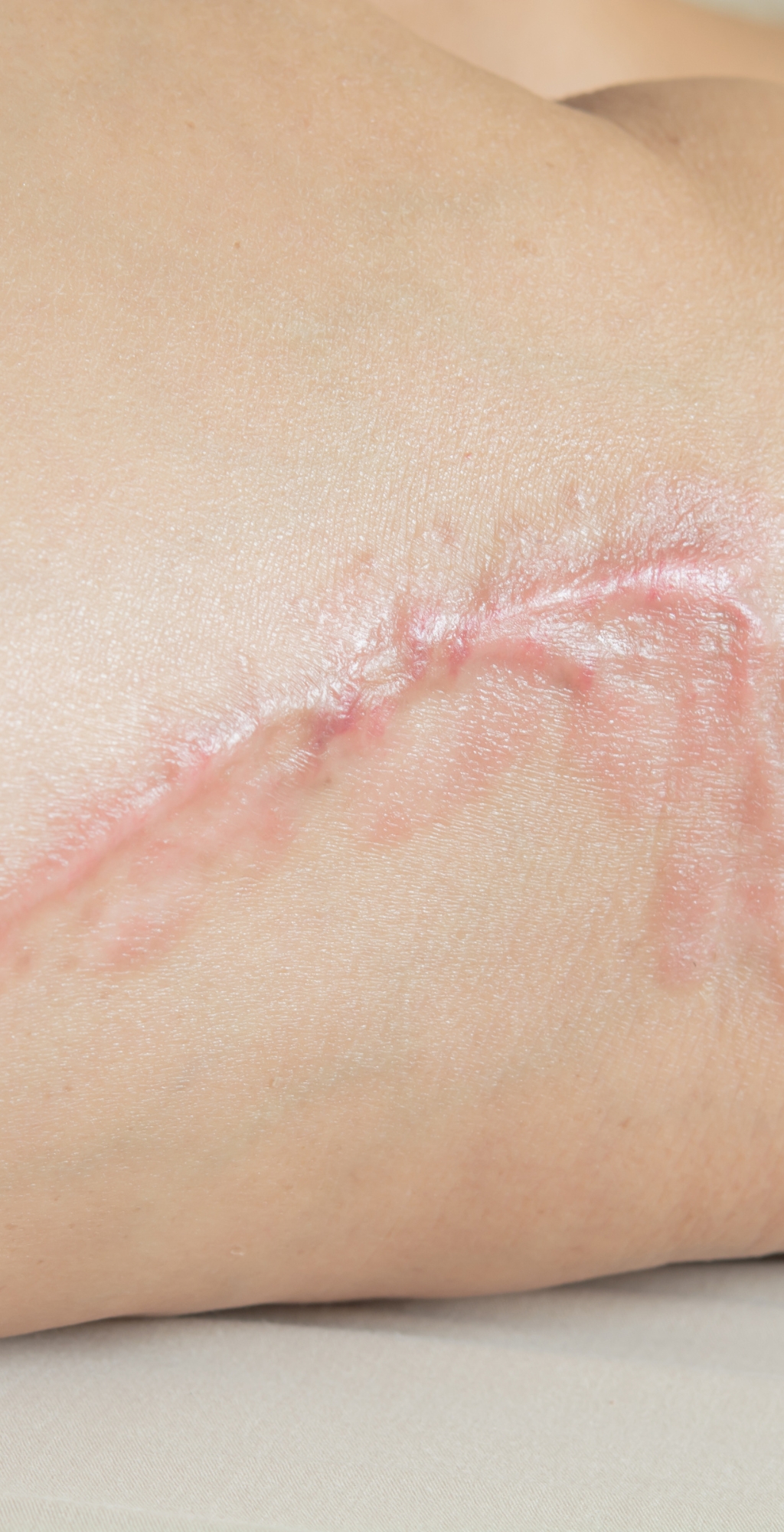Scar Management
- Home
- Scar Management
Scar Management
When to consider a Scar Management?
Scar Management, an approach to reduce and improve the appearance of scars, should be considered when:
A Scar is Prominent or Disfiguring
Especially if located in a highly visible area.
The Scar Causes Physical Discomfort or Restriction:
Such as tightness, itching, or pain.
Affecting Movement
If the scar limits range of motion.
Emotional or Psychological Impact
If the scar's appearance significantly affects self-esteem or causes emotional distress.
After Healing of a Recent Wound
Once a wound has healed and closed, scar management can be considered to minimize its appearance.
Older Scars Showing No Improvement
For scars that have not faded or improved over time.

What is a Scar Management?
Scar management is a set of techniques and treatments aimed at improving the appearance of scars and reducing any related symptoms. This can include surgical revision, topical treatments, injections, laser therapy, and other non-invasive methods. The goal is to make the scar less noticeable and to alleviate any discomfort, tightness, or mobility restrictions associated with it. Scar management is tailored to the individual’s scar type, location, and severity, as well as their overall skin type and healing characteristics.
Who is a good candidate for a Scar management?
Good candidates for scar management typically include individuals who:
- Have fully healed scars that are noticeable and may want to improve their appearance.
- Experience discomfort, itching, or pain associated with their scars.
- Face restricted movement due to the tightness of the scar tissue.
- Are self-conscious or emotionally affected by the visibility of their scars.
- Have scars that haven't improved significantly over time with natural healing.

It’s important for candidates to have realistic expectations about the outcomes and to understand that while scar management can significantly improve the appearance and symptoms, it may not completely erase a scar.
What does a Scar management address?
Scar management addresses:
- Appearance of Scars: Improving their cosmetic appearance, making them less noticeable.
- Scar Symptoms: Alleviating discomfort such as itching, pain, or tightness.
- Functional Limitations: Enhancing mobility if the scar restricts movement.
- Emotional and Psychological Impact: Helping reduce the distress caused by visible scars.
- Scar Texture and Color: Making the scar smoother and more similar in color to surrounding skin.
What does a Scar management not address?
Scar management does not address:
- Prevention of New Scars: It focuses on existing scars and doesn't prevent new ones from forming.
- Underlying Medical Conditions: It doesn't treat any underlying conditions that may have caused the scar.
- Complete Scar Elimination: Scar management often improves the appearance but does not completely remove a scar.
- Overall Skin Health Issues: It's specific to scars and doesn't address broader skin health problems like acne, wrinkles, or pigmentation issues unrelated to scarring.


What to expect during recovery from a Scar management?
During recovery from scar management, you can expect:
- Varied Recovery Times: Depending on the treatment (surgical or non-surgical), recovery times can range from minimal to several weeks.
- Discomfort or Pain: Some treatments may cause mild discomfort, which can be managed with medication.
- Wound Care: If surgical methods are used, proper wound care is essential.
- Temporary Swelling or Redness: Common with many scar treatments, these symptoms usually subside over time.
- Follow-Up Appointments: Essential for monitoring healing and evaluating the effectiveness of the treatment.
What are the risks of a Scar management?
A Scar management, like any surgery, has risks and potential complications. It’s important to understand these risks before deciding to have the procedure.
Infection
Particularly with surgical scar revision.
Allergic Reactions
To topical treatments or injectables.
Worsening of Scar Appearance
In rare cases, treatments might not improve or could worsen the scar.
Pigmentation Changes
Especially with laser treatments, there's a risk of hyperpigmentation or hypopigmentation.
Pain or Discomfort
Some treatments may cause temporary discomfort.
Scarring from Treatment
Surgical methods can lead to new scars, though these are typically less prominent than the original.
Why choose Dr. Brandt for your Scar management?
Choosing Dr. Brandt for scar management could be beneficial due to his expertise in various scar treatment techniques and his understanding of how scars heal differently on each individual. His experience in assessing different types of scars and selecting the most effective treatment plan, combined with a focus on achieving aesthetically pleasing results, makes him a reliable choice. Dr. Brandt’s commitment to patient care, attention to detail, and ability to tailor treatments to each patient’s unique needs and skin types are key factors that contribute to successful scar management outcomes.
